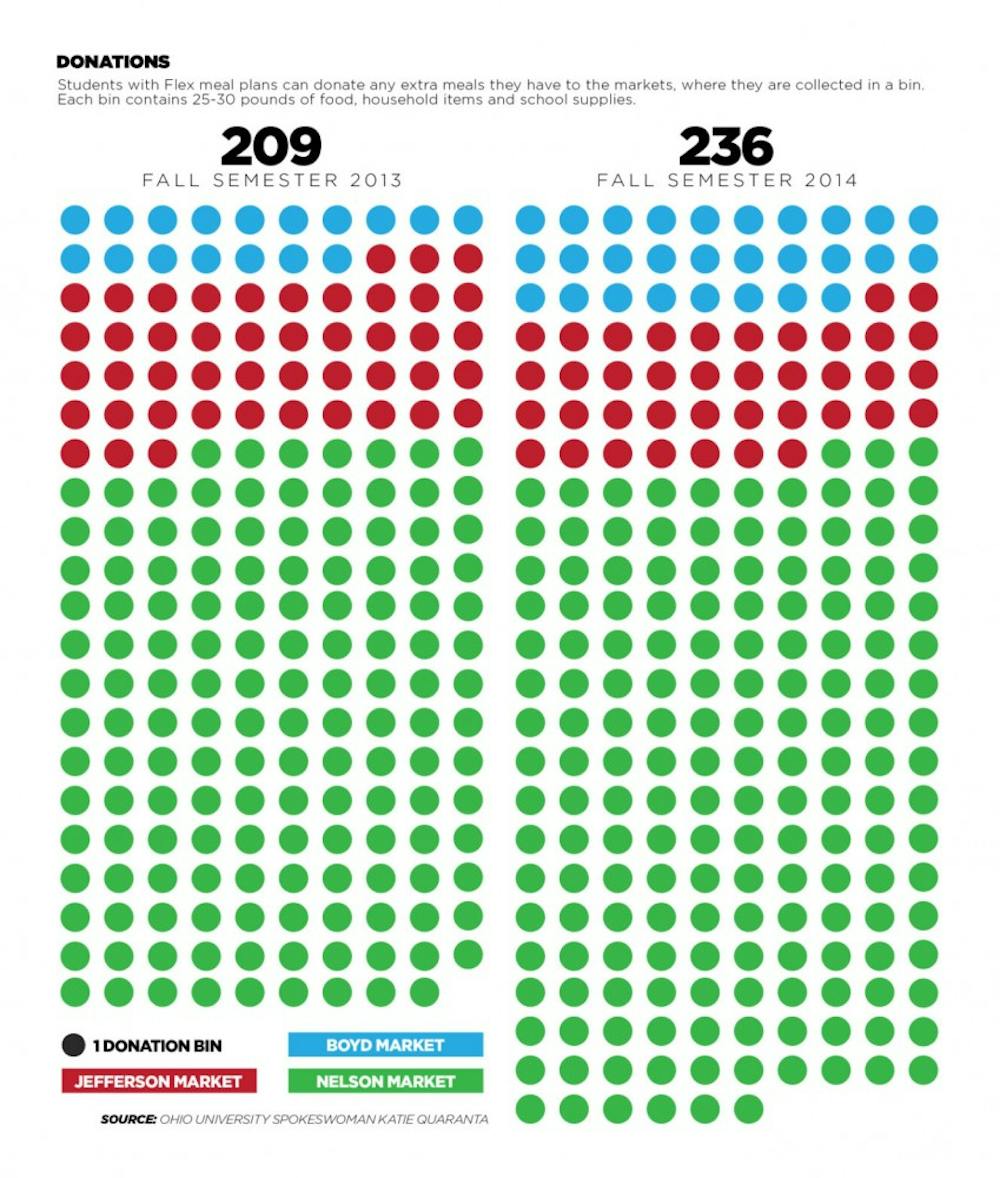Students with Flex meal plans can donate any extra meals they have to the markets.
Before she came to Ohio University, freshman Brittany Schirtzinger was on the receiving end of food donations, but when she bought food from Nelson market earlier this month, she found herself giving back.
Students donating with extra meal swipes at campus markets gave 13 percent more bins of food, household items and school supplies in Fall Semester 2014 than in Fall Semester 2013.
One of these bins weighs between 25-30 pounds, said Katie Quaranta, an OU spokeswoman, in an email.
“It’s money that I have that is going to go bad anyway,” Schirtzinger, who is studying education, said.
If a student on a Flex meal plan has unused meal swipes at the end of the week, he or she can donate the remaining meals at one of OU’s campus markets.
Dan Pittman, assistant director of Auxiliary Sales, said Culinary Services attributes any increase in meal donations to increased awareness about the program.
“I’ll basically donate it if I’m not going to use it,” said Katie Orcutt, a freshman studying criminology. “Some kid could be wondering where his next meal is going to come from, and knowing that you have something in the fridge can be exciting.”
The donated items are given to Good Works, an Athens-based organization with the goal of helping those who are struggling with poverty and homelessness.
“We approached Good Works because of our desire to partner with a community food pantry,” Pittman said in an email.
The frequency of meals donated can vary, but many students said they noticed people donating extra meals on Saturdays when the meal period ends.
One meal is worth $6.25 at the market. If a student only uses part of that, the rest can be donated.
“I usually donate once or twice per week, and it’s usually when I need to get up to (the cost of) a meal,” Orcutt said. “It’s a lot of money, and some people just let it go to waste.”
Nelson Market contributed more than two-thirds of all bins donated, Quaranta said. During fall semester, the students shopping at the market donated 169 bins in comparison to Jefferson Market’s 39 and Boyd Market’s 28.
“Nelson Market experiences a higher influx of customer traffic when compared to our other Campus Market locations,” Pittman said. “As such, the venue typically yields the highest volume of donations.”
Marilyn Valle, a freshman studying biological sciences, said she thinks students would likely donate more if students with traditional meal plans could also donate their extra meal swipes.
Though only students with Flex meal plans can donate their swipes, any student can use cash and credit or debit cards to donate if they wish, Pittman said.
“The boxes are usually full, so someone’s donating and doing a good thing,” Schirtzinger said.
@kcoward02
kc769413@ohio.edu






